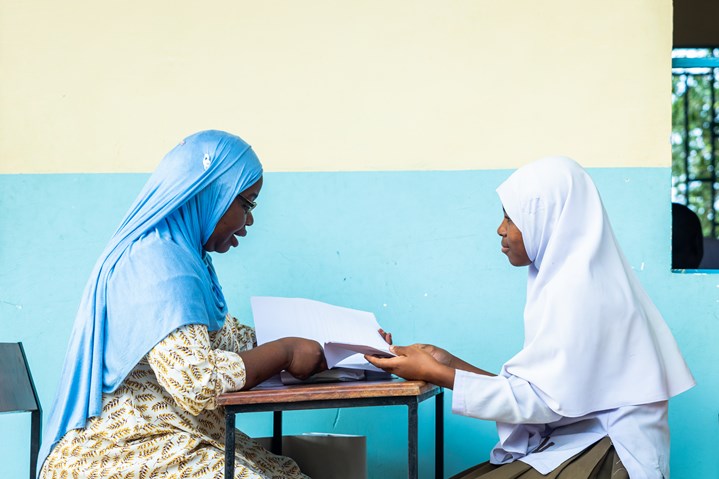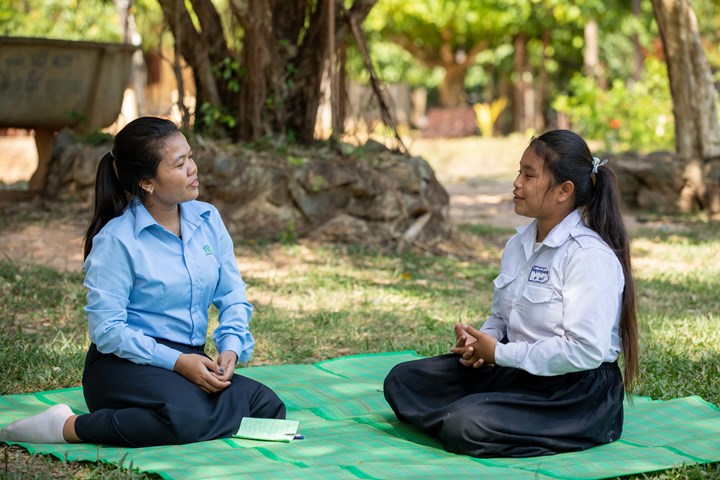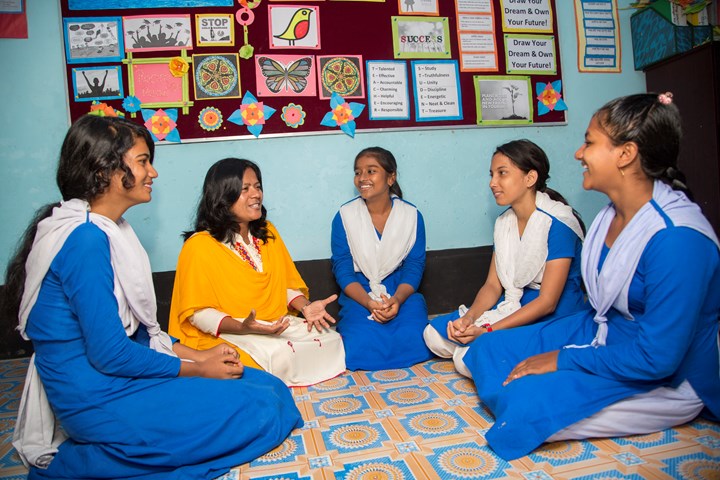
1. Cultivate trust
The key ingredient to any successful mentor-mentee relationship is trust. A mentor may be the only person in a girl’s life with whom she can be open and honest. So, it’s essential to build a deep sense of trust between mentor and mentee. This is the underlying framework for all other aspects of the mentoring relationship.
“Effective mentoring can only happen when a level of trust is established — girls have to know that you genuinely care about them and have their best interests at heart. Only with this trust will they open up, share their vulnerabilities and seek out the guidance they need to thrive,” says Linda Tran, former associate director of Room to Read's Girls' Education Program.
2. Be a friend
Focus on Fun. First and foremost, mentoring relationships should be fun! A mentor’s primary role is to act as a wise, caring friend and supporter for girls. This relationship is less formal than a teacher-student or a coach-trainee relationship.
Be a Role Model. A mentor is someone girls can look up to because of the positive choices they have made in life. Mentors can serve as an example for making positive personal decisions and developing healthy, supportive relationships.
Show Empathy. Showing genuine interest and concern for a mentee’s thoughts and feelings helps them feel safe enough to be honest about their lives. 1,2 Research shows that girls who may not have positive adult relationships in their lives can benefit greatly from a mentoring relationship because this allows them to build trust with adults. A mentor can help them practice understanding as well as regulating and expressing emotions, which leads to higher self-worth.
3. Communicate effectively
Be an active listener. Active listening shows the speaker that the listener truly cares about what is being said. This helps build trust between mentors and mentees and allows for a deeper, more honest relationship.
Use reflective statements. Repeat back what the mentee has said to summarize her situation, thoughts or feelings. Reflective statements give both people an opportunity to ensure they understand one another.
Ask open-ended questions. Open-ended questions allow for clarification and a deeper exploration of a topic. Asking questions starting with who, what, where, how or why invites more of a response versus questions that only require a ‘yes’ or ‘no' answer.

4. Be dependable
Mentees need consistency. Showing up not only shows reliability, but also builds trust. Host regular meetings and be on time, every time. If you’re running late to a meeting, communicate beforehand. Mentees can’t form a strong bond with mentors if their meetings are inconsistent.
Be present long-term. Studies show that the most effective mentoring relationships last for at least six months to one year.
Come prepared. Review the lesson or discussion plan before the meeting. Arriving with organized materials shows mentees that their time and investment are valued, which encourages them to care about the mentoring sessions.
5. Support girls
Validate feelings, goals and dreams. Mentors play an important role in encouraging girls to set goals and develop a roadmap to achieve them. After all, they may not feel comfortable sharing this with anyone else. Encouraging goal setting also helps foster positive self-esteem and better mental health.
Support independent decision-making. An important part of girls’ empowerment is the ability to make independent choices. Mentors shouldn’t judge or criticize girls for what they may view as a “poor” decision. Instead, talk through the steps that led to the decision or the action, and discuss what the mentee might consider in the future. Allowing a girl to make her own decisions helps her feel respected and confident in taking charge of her own life.
“A good mentor should not solve mentees' problems but should facilitate and help mentees to solve their problems,” says Reema Shrestha, regional manager of Room to Read's Girls' Education Program in South Asia.
Encourage positive peer relationships. Social networks are an important part of adolescent life, especially if girls do not receive necessary support or encouragement at home. Research indicates that adolescents’ ability to relate to others increases when they engage in a positive mentoring relationship where mutual trust and respect are modeled. These relationships allow girls to feel socially supported, which increases their chances of staying in school.
Discover our Girls' Education Program




